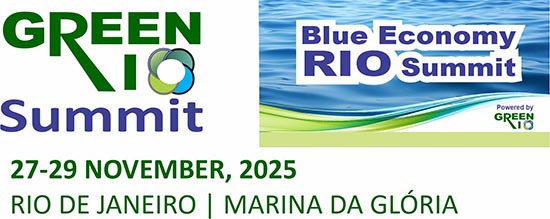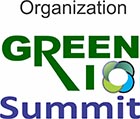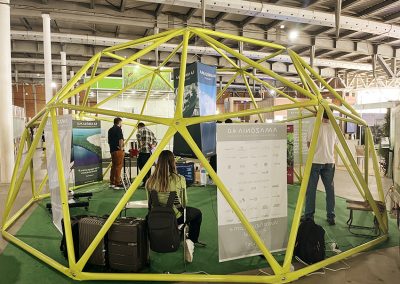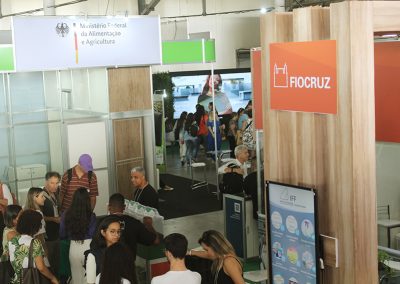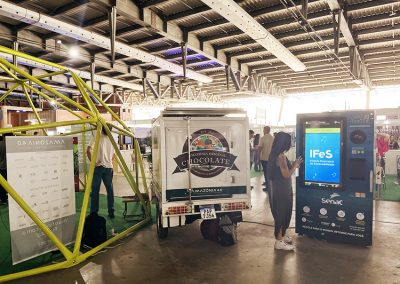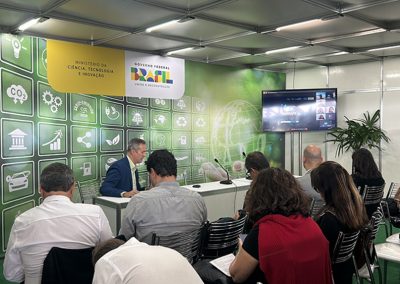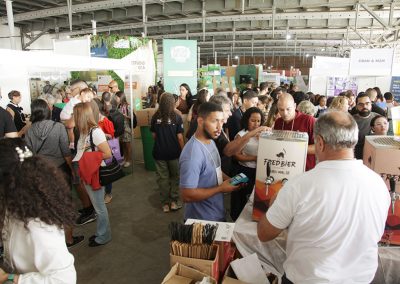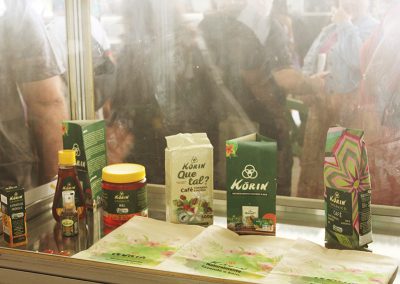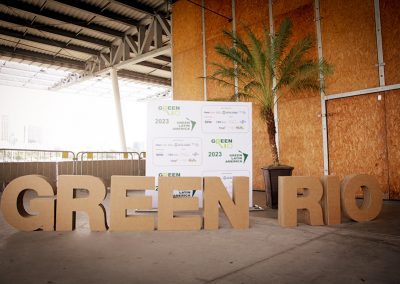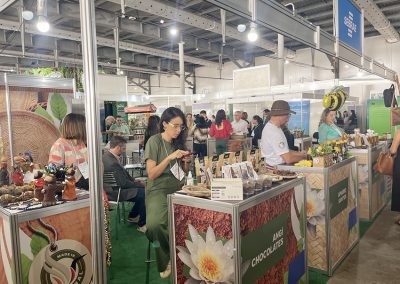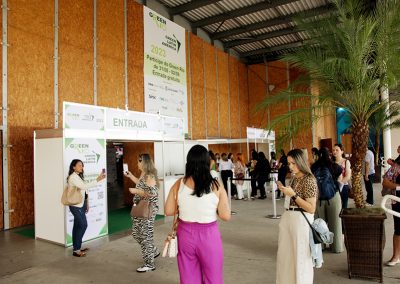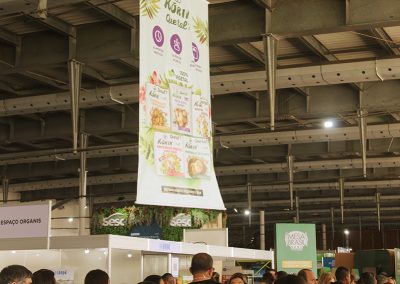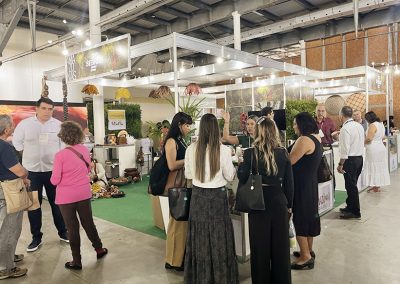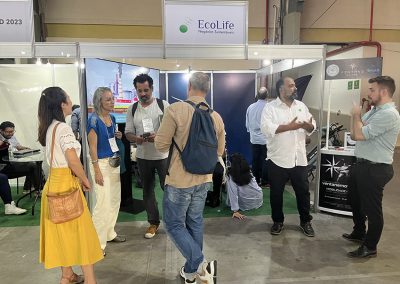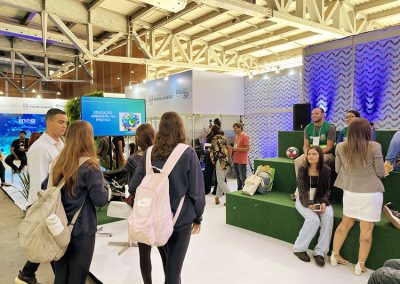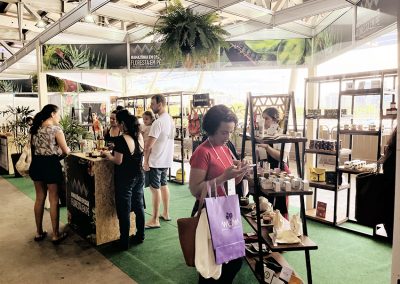| Green Rio 2023 in the search for sustainable solutions |
In its 11th edition, Green Rio | Green Latin America confirmed its vocation as an international Bioeconomy platform, expanding its reach to the Blue Economy. The event, which took place from August 31st to September 2nd, at Marina da Glória, in Rio de Janeiro, was attended by the acting governor and Secretary of Environment and Sustainability, Thiago Pampolha. On the occasion, the decree was signed for the implementation of Guanabara Azul, the Bay’s recovery program, and the partnership with the OECD was announced, with the objective of implementing an action plan to make the capital of Rio de Janeiro a Blue Metropolis. The event had a record attendance with 4,058 people, 110 exhibitors and more than 150 speakers. Participants from several Brazilian states and countries, such as Germany, France, Portugal, Israel, Mexico and Colombia, were present at the three-day event.
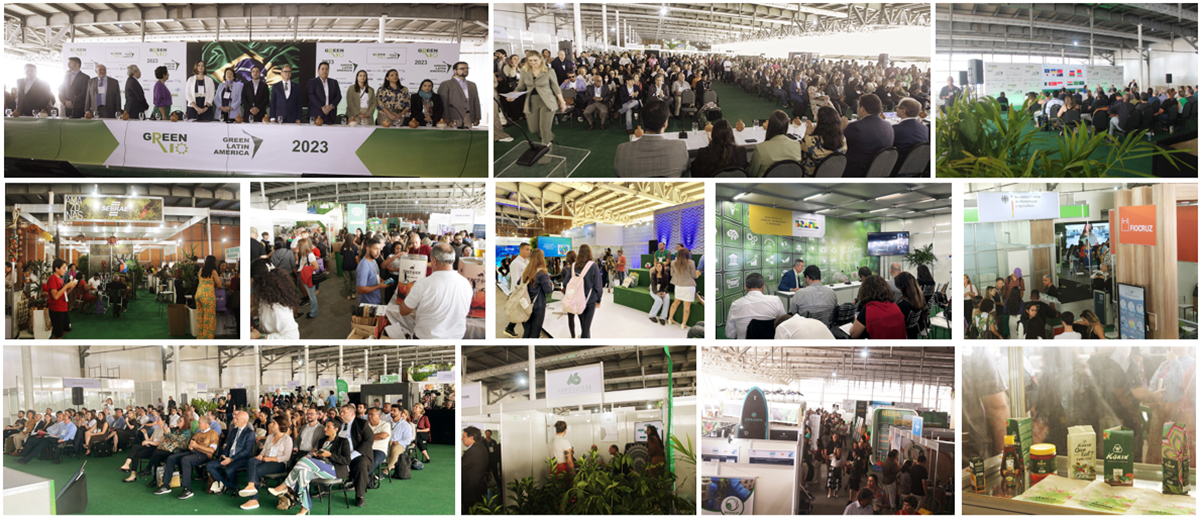
Germany’s Deputy Minister of Food and Agriculture, Claudia Müller, was also present at the event. The authority participated in the opening ceremony and the Brazil-Germany Bioeconomy Workshop, which has been taking place at Green Rio since 2017.
Among the other participants present at the opening were Marcos Dias, Secretary of Metropolitan Integration of the Municipality of Rio de Janeiro, and Lucas Padilha, President of the RIO G20 Committee of the City of RJ. Padilha said that Green Rio will be one of the events that will be close to the initiatives that the City of Rio de Janeiro will promote in the context of the G20 in 2024.

Green Rio 2023 received support from the State Secretariat for the Environment and Sustainability, Fecomércio RJ and SESC RJ, and Fundação Dom Cabral.

Guanabara Azul Program
The program plans to integrate the public and private sectors, national and international development institutions, the basin committee and other entities interested in combating environmental degradation in the hydrographic region.
“We are at Green Rio to bring possibilities for new work fronts and, of course, environmental protection to the state. Rio de Janeiro has great aptitude for bioeconomy, sustainability and innovation” – stated the acting governor and Secretary of State for the Environment and Sustainability, Thiago Pampolha.
“For Green Rio, it is a great honor to promote a blue platform with so many transformative initiatives. I need to give a vote of praise to Thiago Pampolha and Ana Asti. They managed to establish a partnership with the OECD, opening an avenue to position Rio globally de Janeiro as Blue Metropolis”, celebrated the coordinator of Green Rio, Maria Beatriz Bley Costa.

Considered one of the main global bioeconomy meetings, the 2023 edition of Green Rio took more than four thousand visitors, 150 speakers and more than 110 exhibitors to Marina da Glória, for three days of lectures, workshops, fair and business roundtables.

Bioeconomy: Strategic partnership between Brazil and Germany
At the German-Brazilian Bioeconomy Workshop, representatives of the governments of both countries discussed and presented common projects in the bioeconomy scenario. The objective of the meeting was to show the public the scientific work that has been developed jointly by the two nations.
The secretary of the German Ministry of Food and Agriculture, Claudia Müller, opened the workshop and highlighted the importance of the bioeconomy as a solution to the problems faced by the world today.
“I am very happy to talk about bioeconomy in Brazil. This partnership with Germany has been going on since 2017 and shows the unity and trust between the two countries, always looking for solutions to environmental problems”, explains Müller.
Tilman Schachtsiek, leading the German bioeconomy delegation, mediated the presentation of new lines of partnership between the two countries, related to the promotion of research in the area of industrial use of biomass and agribusiness initiatives. The lectures were given by different German and Brazilian researchers, who carry out interdependent studies at local universities in both nations. EMBRAPA and Julius Kühn Institut had a meeting to align joint projects.

Biomes and green technologies at the exhibition
SEAS brought an interactive stand to the event, where it held conversation circles and publicized the actions planned within the scope of the Blue Economy. The Secretariat of Environment and Sustainability-RJ held two panels aimed at the international exchange of experiences and knowledge about the Blue Economy: “Basins and bays: Projects to clean up water bodies in urban areas” and “Blue Economy and oceanic culture”.

The SESC stand had a square where visitors could learn about the initiatives of Sesc RJ, Senac RJ, Ifes and Ifec in the area of sustainability and social responsibility. The MESA-BRASIL/ MESA NO CAMPO program was invited to participate in the Compendium of Good Practices promoted by the OECD.
During the 2023 edition, Vinícius Crespo, president of the Fecomércio Sustainability Institute (Ifes) highlighted the campaign “Zaves and remains interest me”. Crespo presented a new recycling machine that collects five types of waste, such as pet bottles, plastic cups, aluminum, glass and Tetra Pak packaging. The technological equipment rewards the consumer through the delivery of recyclables.

Sebrae Rio was also present at this edition and presented a stand with 13 boxes and spaces reserved for startups operating in the Sea Economy. According to Renato Regazzi, advisor to the SEBRAE RIO board, “the sea economy is a productive force that can change the country”. The Economy of the Sea panel was packed and was one of the highlights of the Green Rio 2023 Conference.

For the first time, Green Rio received HRios Ecobarreira Inteligente technology. It is an environmental station for monitoring, collecting and storing solid waste in rivers and tributaries. One of its objectives is to help clean up Guanabara Bay.

For the second time in a row, the AL-Invest Verde DPI panel was held, in partnership with INPI (National Institute of Industrial Property). One of the axes of the program aims to promote greater effectiveness of Intellectual Property (IP) rights, particularly in Mercosur countries. Under the theme “The green potential of Intellectual Property”, and with the presence of the president of INPI, Júlio César Moreira, valuable perspectives were presented on how intellectual property can become an instrument to promote and support environmental and socially responsible initiatives in the context of sustainable development.

I agree to Green Rio terms of use and privacy policies
